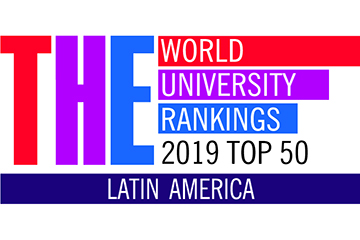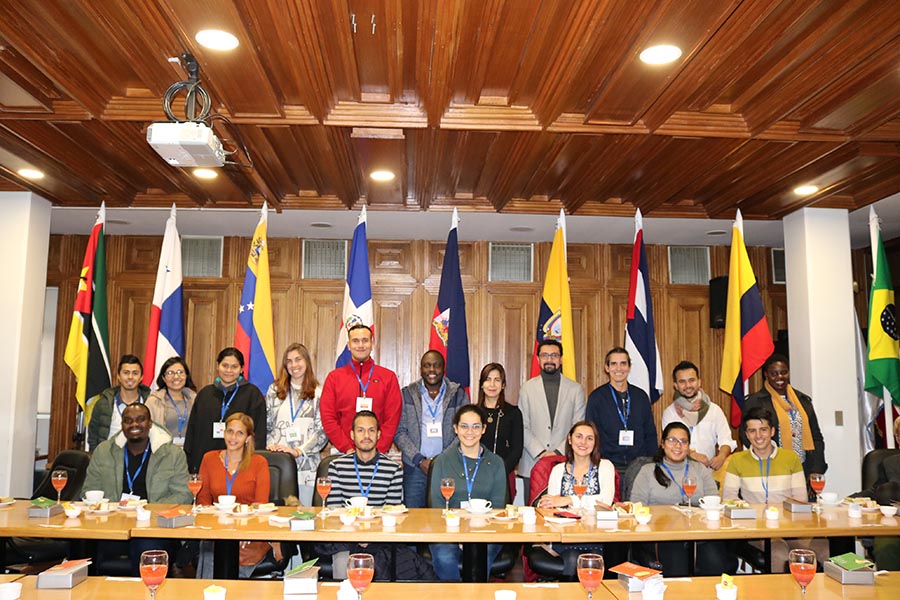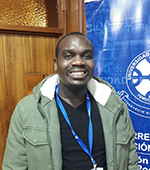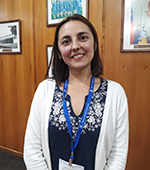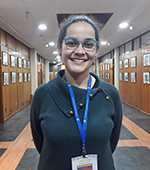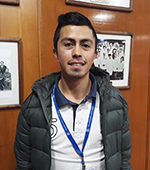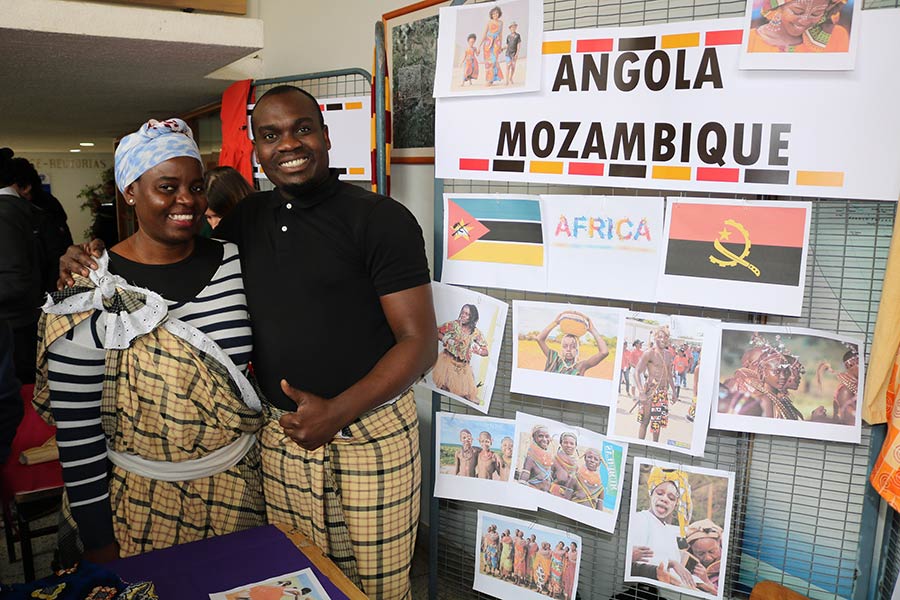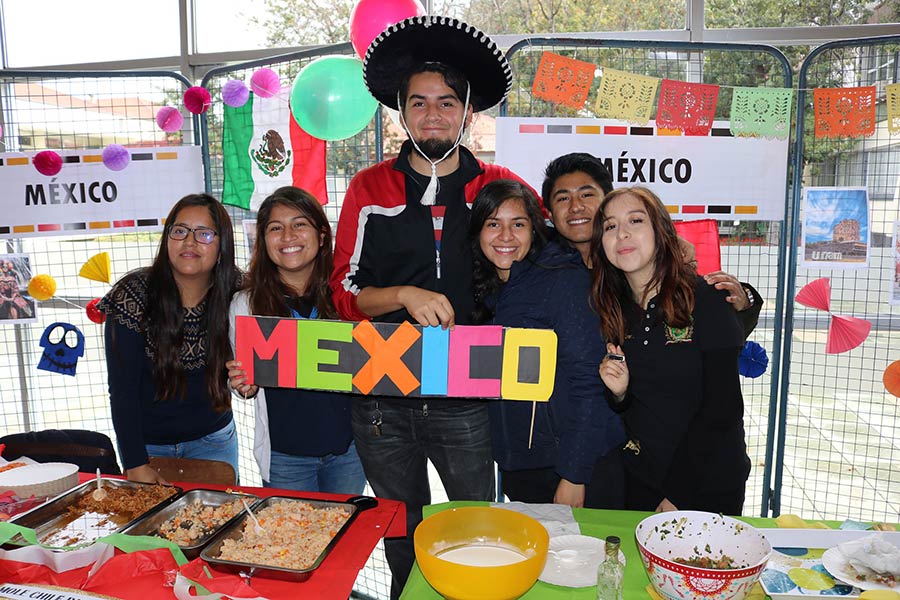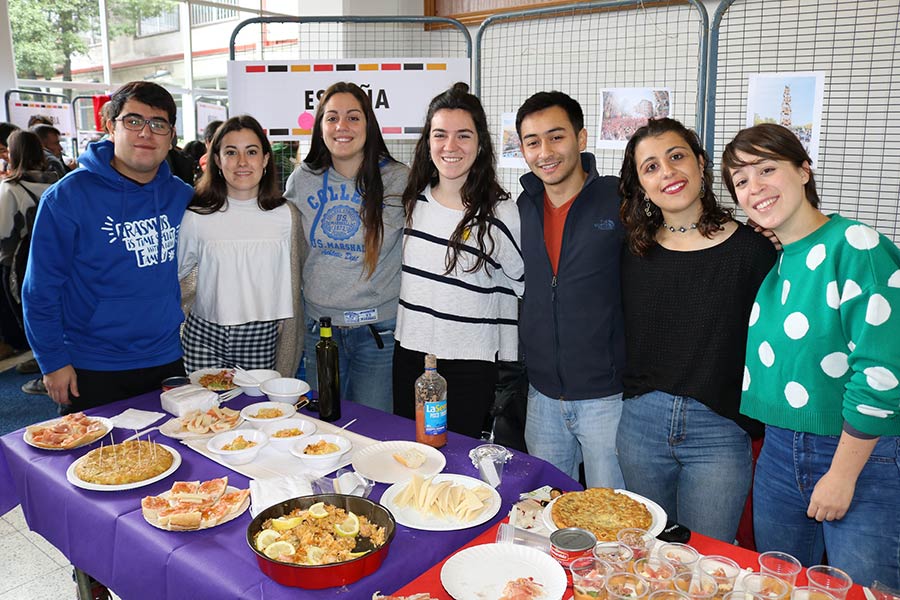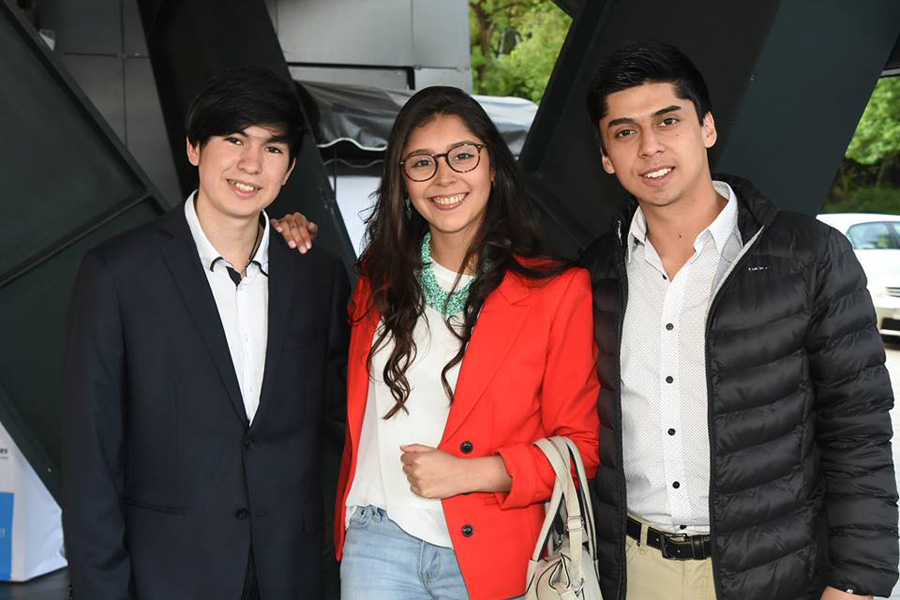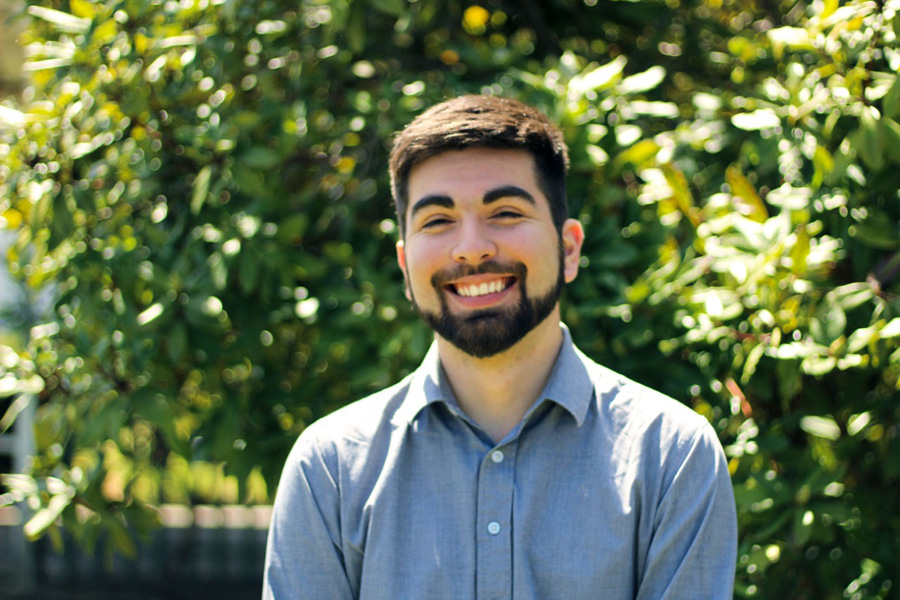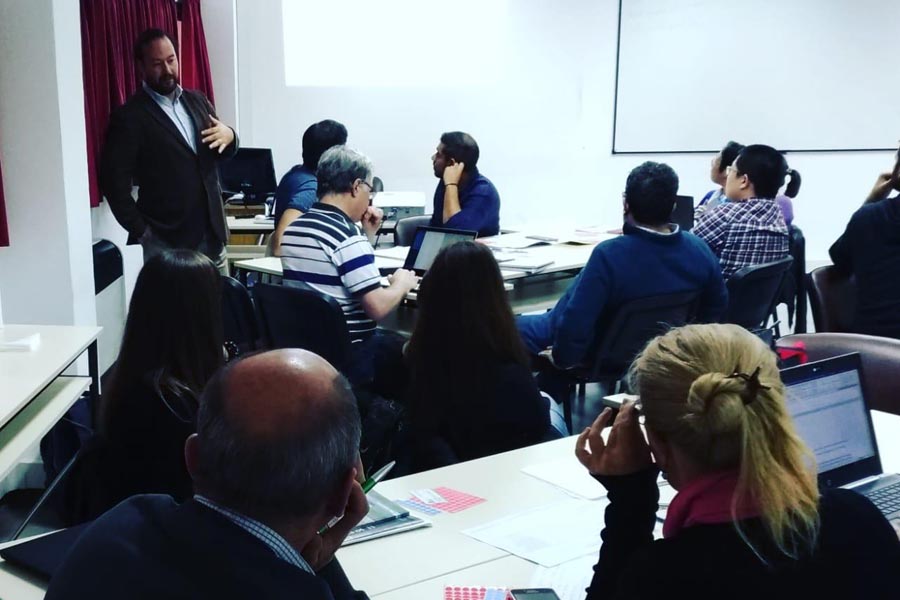|
UFRO significantly improved its position in THE Latin America University Rankings 2019. The result increases the university’s leadership and underlines its excellence in the fields of teaching, research, citations, international outlook and industry income. |
The Universidad de La Frontera (UFRO) achieved an outstanding position in the Times Higher Education Latin America University Rankings 2019. From section 61-70 last year, the UFRO achieved to enter the select group of the 50 best universities in Latin America by climbing to 42nd place this year. Among the Chilean universities, the UFRO is ranked in 5th place and in 3rd place regarding the state universities. This is an important improvement that encourages and recognizes the whole university community and evidences the university’s leadership. “The result of this ranking that ranked us among the 50 best universities in Latin America is the result of serious, constant and systematic work. And all with a sense of belonging to the academic work. As a university, we are proud of this achievement, because it puts us in a great position and ratifies us as a university that develops in different fields – in this case: research, citations, international outlook and industry income,” Dr. Eduardo Hebel, the Rector of the university, said. Upon receiving the general and specific results in each field, the authority also affirmed: “This is a scenario that values our work from a state and regional point of view, committed to research, innovation and internationalization. There is no doubt: this is great progress.” The performance indicators this ranking judges are grouped into five areas: Teaching (learning environment); Research (volume, income, reputation); Citations (research influence); International outlook (staff, students, research); and Industry income (knowledge transfer).  Written by: UFRO Communications Office Written by: UFRO Communications OfficeThis email address is being protected from spambots. You need JavaScript enabled to view it. |
|
The Academic Postgraduate Affairs Office of the Universidad de La Frontera organized a welcome ceremony that allowed the new students to get to know each other and to talk about their experiences. |
The new foreign students, who came to the Universidad de La Frontera (UFRO) to join our postgraduate programs in 2019, come from Angola, Mozambique, Brazil, Ecuador, Cuba, Colombia, Panama, Venezuela, Haiti, the Dominican Republic and Russia. The Academic Postgraduate Affairs Office of the UFRO organized this welcome ceremony that allowed the students to share their experiences and to get to know each other. They also talked about the reasons why they chose this institution for their postgraduate studies. They all agreed on how fast the UFRO responds to the requests and questions of the foreign applicants compared to other Chilean institutions, and also emphasized the international outlook of the UFRO that stands out in the world’s most important rankings, especially in the field of research. “I did not know the Universidad de La Frontera, but when I started to search for information to apply to a postgraduate program, I took a look at the Shanghai Ranking, that ranks universities at the international level, and I found out that this university is in the first quartile of the best universities in Chile,” Jhon Avellaneda from Colombia said. “It is very pleasing to hear that students of different nationalities have such a good perception of our postgraduate programs and that they recognize their excellence. And that is not random, it is the result of our work, especially of the program directors who don’t just focus on academic and scientific aspects, but also on humanizing the application process for international students,” Dr. Monica Rubilar, the academic director of Postgraduate Affairs at the UFRO, said. The new foreign students came to the UFRO to join the following postgraduate programs: Doctoral Program in Agri-food Sciences and Environment; Doctorate in Natural Resource Sciences; Doctorate in Social Sciences; Doctorate in Engineering Sciences with Specialization in Bioprocesses; Doctorate in Medical Sciences; Master in Social Management; Master in Regional, Local and Human Development; Master in Natural Resource Management; Master in Community Psychology; Master in Engineering Sciences with Specialization in Biotechnology; Master in Total Quality Management Systems; Master in Education; Master in Family Studies and Development. Dr. Renato Hunter, the Vice-rector for Research and Graduate Studies at the Universidad de La Frontera, presented the indicators of scientific productivity of the university to the new international students and, above all, invited them to enjoy this new stage in their professional training, to disseminate their culture among the university community and to enrich our institution with it. RESEARCH FIELDS
 Written by: Karimme Riadi Written by: Karimme RiadiUFRO Vice-rectorate for Research and Graduate Studies |
|
About 200 undergraduate students visited this year’s version of the International Fair at the Universidad de La Frontera and got to know different cultures and international gastronomic delights. |
The International Fair of the Universidad de La Frontera, where our national and international undergraduate students present their countries and cultural particularities, is organized by the National and International Student Mobility Office of the International Affairs Office. This year, about 200 students visited the Fair and participated with enthusiasm in the different activities the representatives of Germany, Belgium, Spain, Italy, Argentina, Mexico, Uruguay, Angola, Mozambique and Chile had prepared. Dr. Berta Schnettler, the director of the International Affairs Office, appreciated the numerous participation of foreign students, who came to the UFRO for their student exchange and shared their cultures, as well as of the national students, who shared their experiences from their student exchange abroad. GREAT EXPERIENCES The International Fair is a space where the national and international university students share their student mobility experiences, present their cultures and promote the values of interculturalism. Antonia Espinoza, who is in charge of the National and International Student Mobility Office of the Universidad de La Frontera stated: “This kind of activities is very important for the promotion of cultural exchange within our university community. And also for our undergraduate students, because they have the opportunity to get to know the possibilities regarding international student mobility.” The young students presented their native countries or the countries where they went, for example with delicious samples of the typical food, such as German apple pie, Italian pizza, Belgium meet with sherries, Uruguayan and Argentinian meat, Mexican tacos, French quiche, Spanish potato omelet, or the typical Chilean “Mote con Huesillo”, which is a non-alcoholic drink made from wheat and peaches. The graduate students from Angola and Mozambique, who also participated in the International Fair, even showed the typical clothes from their countries. This year, the International Fair worked with a system of small tickets, which were sold by the Association of Sponsors and which could be exchanged for the products of the different stands. Another innovation was the little passport that was handed to the visitors in order to get a stamp at each stand visited and which was used for a contest with gifts of the Universidad de La Frontera at the end of the activity.  Written by: UFRO International Affairs Office Written by: UFRO International Affairs OfficeThis email address is being protected from spambots. You need JavaScript enabled to view it. |
|
The Fowler Global Social Innovation Challenge takes place at the University of San Diego, California, from June 14 to 16. |
A team of students of the Faculty of Engineering and Science of the Universidad de La Frontera (UFRO) participates from June 14 to 16 at the Fowler Global Social Innovation Challenge (GSIC) in San Diego, California, USA. This international social venture pitch competition recognizes, resources and rewards student-led social ventures focused on sustainable change and brought about 900 teams of 35 universities from 17 different countries together during the last eight years. In this year’s version, the participants from all over the world will compete for up to $50,000 in funding and other resources. The team of UFRO students of the Faculty of Engineering and Science, called “Clever”, was one of the winners of the competition “Experimentando” (experimenting) UFRO 2018 and directly entered the competition after being selected one of the best projects of Jump Chile, which is an initiative promoted by the UC Anacleto Angelini Innovation Center and Sura. They are one of the two teams that represent Chile in the competition. “Clever is a project that aims at reducing the huge amount of plastic waste in the environment and converting it into a new material, which is very similar to timber, but consisting of recycled plastic. The material has a lot of potential for being used in a lot of ways, but, initially, we want to focus on the construction industry,” Benjamin Pardo, a student in Civil Industrial Engineering with specialization in Computer Science at the UFRO, explained. He is one of the team members who will travel to the USA, together with Jose Ignacio Barrera, who studies Civil Mechanical Engineering at the UFRO and also is part of the initiative. Which significance has the participation at the Fowler GSIC for you? This experience will be absolutely different compared to what we have done so far, although the methodology and the process is very similar to the competitions in Chile. Our presentation in San Diego is a step out of our comfort zone and, without a doubt, this event will bring us new experiences and essential contacts as an entrepreneur, besides, we will get to know the projects other students are working on in different places of the world. What do you expect from your participation in this international event? If you win, what do you want to accomplish with this project? We are very excited to go and hope to give a good presentation. We are getting prepared with the help of a large team, as well as with other institutions that give us feedback in order to improve. If we win, we will try to find the best way to distribute the budget, especially regarding prototyping and technical validation. Besides, it is a good chance to disseminate the project, as well as the cause behind it. What kind of knowledge can an event like this deliver on a personal and professional level? This event will allow us to get to know another culture, to acquire new and more knowledge about entrepreneurship, as well as to use our English language skills, what is fundamental for today’s professionals.
 Written by: Mauricio Antivil Written by: Mauricio AntivilMacro Faculty of Engineering |
|
The academic of the UFRO held a lecture on horticultural production in uncertain conditions at the National University of La Plata (Universidad de La Plata) in Argentina. |
Within the framework of his participation in an international research project that mainly aims at improving decision-making processes in horticultural production in uncertain conditions, Dr. Jorge Hernandez, an academic of the Department of Industrial and Systems Engineering of the Universidad de La Frontera (UFRO), held a lecture at the National University of La Plata (Universidad de La Plata), Argentina. The current challenges and methodology used for the survey of requirements associated with the optimization of different horticultural processes were part of his presentation before the Unit of Agricultural Sciences of the University of La Plata, representatives of development and agricultural entities of the city, as well as members of the Argentinian Ministry of Agriculture. "One of the main aspects we are working on in this international research project has to do with the modeling of decision-making processes in the horticultural chain, in which both, farmers, companies and government bodies, are involved. We are not carrying out this study with an agronomic approach, but rather from the point of view of the optimization of the value chain, which is what concerns us as Industrial Engineers, and what I shared in my presentation today is part of what we have done so far,” Dr. Hernandez, an academic who teaches Logistics and Operations Management at the UFRO, said. RUC-APS PROJECT Chile, Argentina, France, the United Kingdom, Spain, Italy and Poland are the countries involved in this project called “Enhancing and implementing Knowledge based ICT solutions within high Risk and Uncertain Conditions for Agriculture Production Systems (RUC-APS)”. In the context of the Horizon 2020 program, the objective of this project is to promote the development of research and knowledge transfer in the horticultural sector, where the exchange of inter and multidisciplinary experts for research and innovation favors the development of a standard proposal of methodologies and decision support solutions in uncertain conditions for farmers. "My intention is to involve the Universidad de La Frontera in this and other similar projects, since we can contribute from my field of research, as well as others, to the development of research on problems that are common all over the world," emphasized Dr. Jorge Hernández, who, together with Elizabeth Kher, a researcher at INIA (Agricultural Research Institute), collaborates in the RUC-APS project.
Written by: Daphne Bormannn
UFRO Faculty of Engineering and Science |





